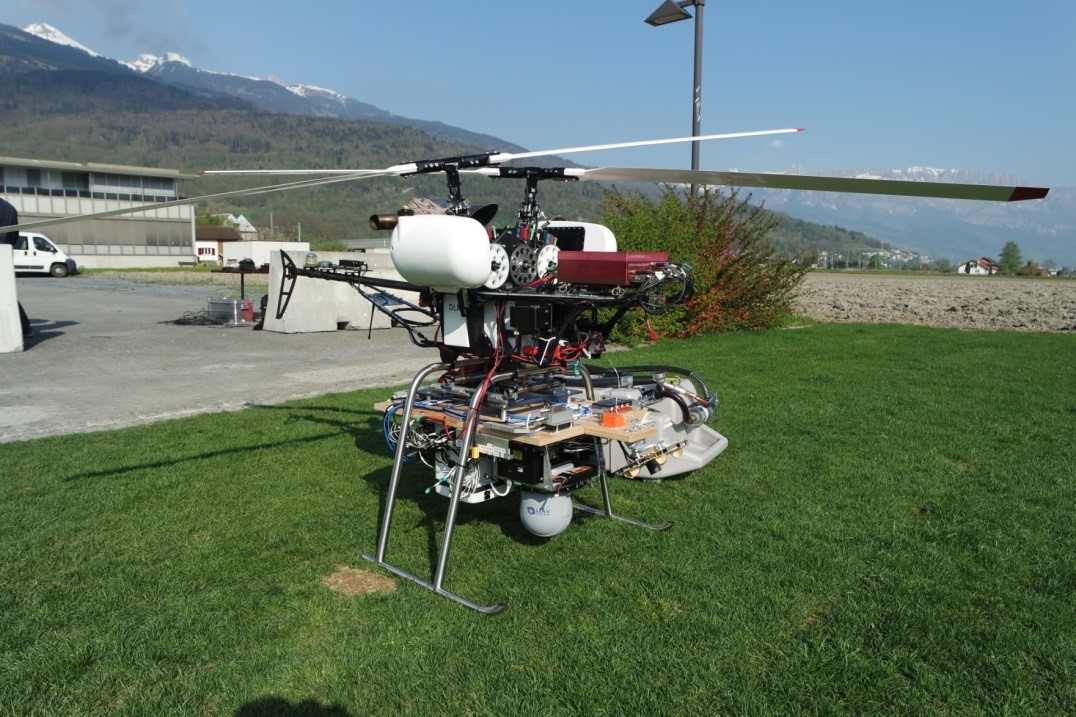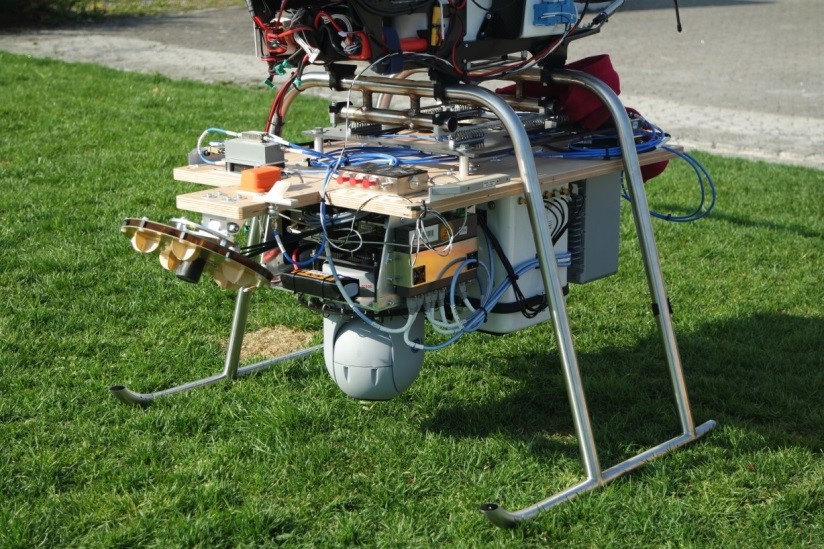In urban environments in particular, protecting convoys is a difficult task. There are too many buildings and obstacles that offer potential attackers opportunities for concealment. The Federal Office of Bundeswehr Equipment, Information Technology and In-Service Support (BAAINBw L1.1) has awarded Airbus Defence and Space in Manching, Germany and the Fraunhofer FKIE a project entitled »Agile UAV in Network Centric Environment (Agile UAV in NCE)«.
The task of the Fraunhofer FKIE was to create a reconnaissance system that contributes to the provision of a continuous overall situational picture for the Forward Air Controller (FAC) accompanying the convoy to enable detection, tracking and identification of potential threats.


